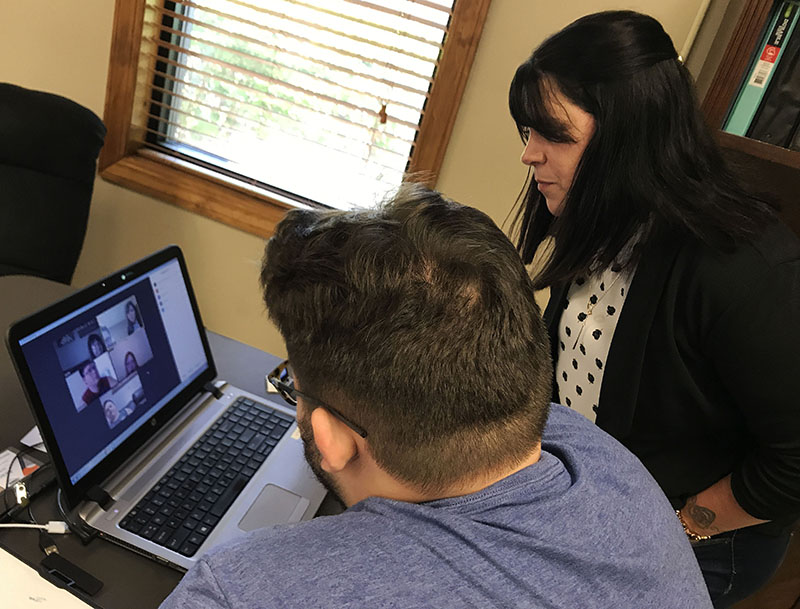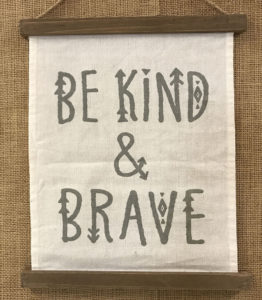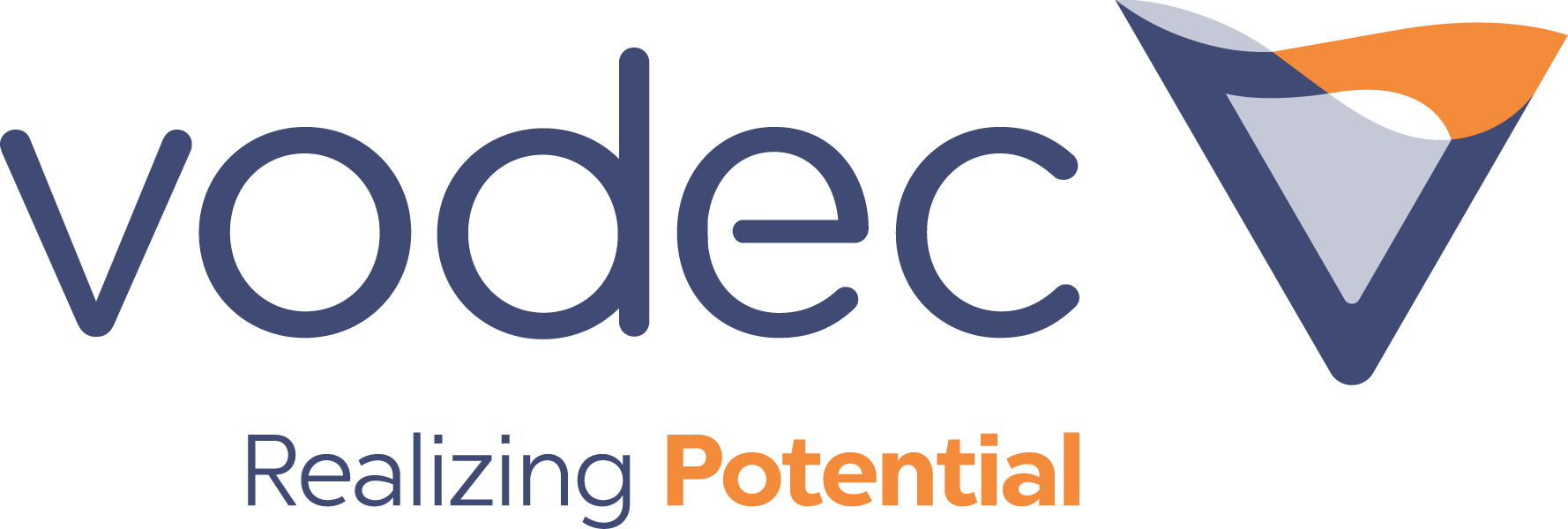
Vodec’s Sean Jordan and Jenny Salsbury conduct a virtual summer school session with ATP students at Vodec.
COUNCIL BLUFFS – Nicole likes cats. Tiger, her pet cat, is a topic Vodec’s Sean Jordan sometimes uses to jumpstart a virtual conversation with her, as she can be a young woman of few words.
She and seven others from three Iowa school districts – Council Bluffs, Tri Center and Underwood – comprise Vodec’s first ever summer school class for Adult Transition Program (ATP) students at Vodec’s development center in Council Bluffs.
ATP is designed to meet the needs of students with mild or moderate intellectual disabilities between the ages of 18 and 21. The program helps them develop the skills necessary for daily living, including practical money management, how to get and keep a job, and preparing nutritious meals, among others.
The inaugural summer school session began June 8. The students meet with Sean, day services assistant, and Day Services Supervisor Jenny Salsbury four times a week – twice individually and twice as part of the larger group. The sessions are held virtually via Zoom due to the COVID-19 pandemic.

The walls of the ATP classroom in Council Bluffs are covered with supportive and inspirational artwork.
For Jenny, being able to connect with her students during the traditional three-month break from school is essential to their continual progress. “These classes help them maintain a routine – a skill that will become even more important as they age out of the program,” she said.
An equally important takeaway, Jenny noted, is the opportunity for the students to practice their social skills in a safe and welcoming environment – the intangibles that help make participating in community life a little bit easier.
During a recent group session, the class and their instructors signed on and armchair traveled some 3,217 miles to the Alturas Wildlife Sanctuary in Dominical, Costa Rica, a rescue and rehabilitation center for sick, injured and orphaned wildlife in the middle of a rainforest. Many of its animals – spider monkeys, toucans and kinkajous, to name a few – have experienced trauma at the hands of humans. Some have been confiscated from the illegal pet trade, others have long-term physical or neurological injuries that prevent their release.
It’s hard to tell who’s more excited by what they’re seeing, hearing and learning – the students or the instructors.
“I want to hold a baby sloth,” Sean proclaims as the tour guide explains the difference between the two-toed and three-toed jungle animal.
Jenny and Sean ask a lot of questions as the guide goes on to highlight a frog species whose croak sounds like a cat’s meow and a savage-looking creature called a bloodworm – a marine animal with fangs like a grappling hook that’s used by the locals as fishing bait.
The back-and-forth between the students and the Vodec duo sounds like an animated dinner table conversation covering everything from biology to potential jobs to a tally of who would be comfortable holding a worm. Nicole jumps right in this time. “I don’t like worms – they’re gross,” she says.
In order to participate in Vodec’s ATP Summer School, a student must qualify for Extended School Year (ESY) services, which are designed to support students with disabilities so they can maintain the academic, social/behavioral, communication or other skills learned during the regular school year. Jenny said she’s expecting more students to join the first summer school class soon.
For more information about Vodec’s Adult Transition Program, contact Jenny at jsalsbury@vodec.org.
